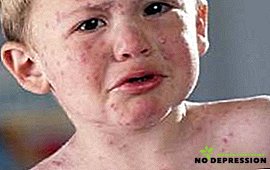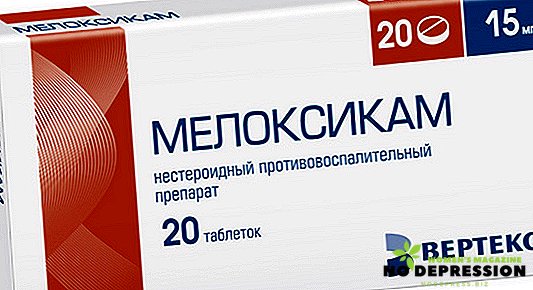The issue of vaccinations worries most mothers in modern society. Unfortunately, our medicine is not completely perfect, not fully understood. Many diseases have not yet come up with drugs, and therefore the question of many diseases concerns society in different parts of our planet.
There is a generally accepted vaccination schedule approved by the Ministry of Health. It is different in each country, it depends on which diseases are the most dangerous in a particular area of residence.
So, in the countries of Africa and Asia there is a huge danger for the simple reason that the development of the country is very low and the standard of living of people is rather low, which means that the medicine in such countries is weak.
Unfortunately, even the developed countries of the world, such as the European countries, as well as the states of the Americas, cannot be fully protected from any virus disease, as there are such concepts as migration and tourism.
 People from around the world are moving in their thousands every day and it is impossible to track or suspend this process. This is how dangerous diseases are carried around the globe. This means that vaccination is essential for all of humanity, at least at this stage.
People from around the world are moving in their thousands every day and it is impossible to track or suspend this process. This is how dangerous diseases are carried around the globe. This means that vaccination is essential for all of humanity, at least at this stage.
After all, if the vaccination is stopped completely, the risk of developing infectious diseases will instantly increase to a catastrophic level and this will become dangerous for our existence.
Until people have invented medicines for viral diseases transmitted by households, which can provide an instant 100% cure for the disease, mankind cannot refuse vaccination, it is extremely unwise.
Only due to the fact that over the past many decades, the world has been practicing a vaccine against a number of diseases, we live and do not worry about the fact that the disease can cover a large scale, which will be terrible to go out.
This is especially true for younger children, who are more likely than adults to be infected, since the young immunity has not earned itself sufficient immunity to fight viruses.
Vaccinations for children: weighty arguments for and against
In the modern world there are such viral diseases from which children should be vaccinated:
- Hepatitis B;
- polio;
- diphtheria;

- whooping cough;
- tetanus;
- tuberculosis;
- measles;
- rubella;
- parotitis;
- flu.
These diseases have properties that will quickly spread among the population and are very dangerous to people's health and life.
Arguments for vaccinations against infectious diseases:
- vaccination can protect a child from getting infected;
- vaccination can provide a weak course of the disease, in the case of infection;
- vaccination can ensure the complete disappearance of an epidemic in a certain area in the event of mass vaccination of the population;
- vaccination can be made only in the case of the implementation of certain rules for vaccinating a child and after examination by a doctor.
Arguments "Against" Vaccination:
- There is a perception among the population that vaccination injures the child’s immunity;
- You can not be vaccinated if there are certain contraindications to vaccination;
- there is a category of people who unknowingly refuse vaccine, without knowing what danger they are putting themselves and their surroundings in the future;
- many people refuse vaccinations because of distrust of the vaccine, which is often poor-quality production and an unknown manufacturer, for example, experimental;
- some people refuse vaccinations because they are afraid of injections;
- some refuse because of the side effects that some children may have.
In any case, vaccination is a very important issue that cannot be ignored. Take vaccination very seriously. After all, if people do not think about the health of a future nation and everyone today refuses to be vaccinated, then after a while, mankind will be threatened with an epidemic that will easily spread everywhere.
In order to somehow control the vaccination process, the Ministry of Health introduced a number of requirements for visiting mass institutions, such as kindergartens, school institutions, as well as other institutions with a mass gathering of people.
If all people are negligent about vaccinations and out of ignorance, or for other reasons, abandon the vaccine, then it is not difficult to guess that it will not end with anything good.
Vaccinations at the maternity hospital: pros and cons
Since birth, doctors begin to worry about the health of the future baby, therefore, according to the rules of vaccination, in our country it is necessary to vaccinate immediately for the first two days against a disease like Hepatitis B, which tends to be transmitted:
- sexually;
- through the blood (in contact with an open wound, through syringes or other needles);
- in hairdressing salons, when shaving or cutting with a clipper, scissors;
- with blood transfusions;
- in the tattoo and piercing salons;
- in manicure and pedicure salons;
- drug addicts injecting syringes.
The disease is very difficult and difficult to treat. For her treatment need expensive drugs and a long period of rehabilitation. Therefore, it is not necessary to neglect the health of the child and agree to the vaccine.
In addition to the Hepatitis B vaccination, the newborn should be vaccinated against tuberculosis on the third day after birth to the newborn. This disease is well known and has a very dangerous nature. In order to protect themselves and their child from infection with tuberculosis, in the maternity hospital, the child should be vaccinated, which is called BCG.
Tuberculosis is transmitted by airborne droplets, in everyday life through dirty hands and dishes.
The reaction to vaccinations against Hepatitis and BCG, provided that the child is healthy and properly examined by the doctors, should not frighten the mother, since the child will still be under the supervision of doctors in the hospital.
The usual reactions to Hepatitis B vaccines are:
- increase in body temperature up to 38 degrees;
- local allergic reactions such as itching, redness, irritation;

- rarely anaphylactic shock, angioedema;
- swollen lymph nodes;
- tearfulness, irritability;
- loss of appetite;
- hyperexcitability;
- pain in the joints and muscles;
- fever.
In any case, a child who has just been born is not able to tell about his feelings, therefore, a reaction to the vaccine usually causes increased irritability and tearfulness.
In order to protect against a negative reaction from a vaccine against a particular disease, it is necessary to properly prepare for vaccination:
- pass a pediatrician examination;
- pass blood and urine tests;
- examine the child and make sure that he does not have a fever before going to the clinic;

- stock up with drugs such as antipyretic, antiallergic and painkillers in advance;
- it is not necessary to feed the child strongly before vaccination, since the body should not be loaded with heavy food;
- in the period of 7 days before and after the vaccine, it is not necessary to feed the child with new foods that have not previously been used in the diet, and also not to give citrus, chocolate and other allergens;
- After vaccination, you need to stay in the hospital, do not rush to go home, as in the case of anaphylactic shock, so that there is an opportunity for an urgent response and help to the child
- It is advisable to give antiallergic drugs before vaccination and to be used for life by increasing body temperature;
- before you go home, it is better to take the mobile phone of a doctor and a nurse, who can call in case of any unforeseen circumstances;
- the first day of the injection site can not be wetted and cooled. It is better to be at home warm and not in contact with people.
Opinion of Dr. Komarovsky on vaccinations
Dr. Komarovsky, like most of the adequate qualified specialists in the field of pediatrics and immunology, believes that it is advisable to carry out mass vaccination against such dangerous diseases as those that are often found in our environment.
 The opinion of Dr. Komarovsky is such that, subject to simple rules before vaccination, there is nothing terrible in vaccinations.
The opinion of Dr. Komarovsky is such that, subject to simple rules before vaccination, there is nothing terrible in vaccinations.
Rather, on the contrary, in the absence of vaccinations, children are afraid to be brought into society.
After all, the disease is much more dangerous than vaccination against it.
Influenza is an insidious disease characterized by:
- a sharp jump in body temperature up to 40 degrees;
- poor health, weakness, lethargy, loss of appetite.
Further symptoms such as can gradually appear:
- chills;
- headache;
- sore throat;
- runny nose;
- cough;
- body aches, muscle pain.
 Influenza is transmitted by airborne droplets and outbreaks often occur in the autumn-winter period, when the cold season. Most likely to get the flu in crowded places, in kindergartens, in schools, in supermarkets, hospitals, in public transport, etc.
Influenza is transmitted by airborne droplets and outbreaks often occur in the autumn-winter period, when the cold season. Most likely to get the flu in crowded places, in kindergartens, in schools, in supermarkets, hospitals, in public transport, etc.
Therefore, vaccination against the influenza virus has found its mass distribution in our country, but it is not mandatory.
Influenza virus can be of different forms and in recent years, its variants, unfortunately, are increasing. There are such dangerous types of virus as swine flu, bird flu and other little-studied ones, which have not yet been invented for drugs, and treatment is reduced to strengthening the immune system and treating symptoms.
Flu vaccine for adults
Opinion on vaccination against influenza adults are divided. The first category includes people who agree with doctors who advocate vaccination, since the small consequences after an injection are much easier to eliminate than to get sick with the flu virus and put yourself in mortal danger.
 The second category is, respectively, the doctors, who argue that the vaccine is not a proven remedy for the disease, but can only provoke it. Despite the fact that the essence of the vaccine is that the body is injected with a weakened component of the virus or a dead component that does not pose a danger to the human body.
The second category is, respectively, the doctors, who argue that the vaccine is not a proven remedy for the disease, but can only provoke it. Despite the fact that the essence of the vaccine is that the body is injected with a weakened component of the virus or a dead component that does not pose a danger to the human body.
In response, the body will develop immunity, which will help to escape from the real living virus molecule.
The flu virus is a disease that tends to mutate with each passing year, forming more and more new types of the disease. Therefore, every year the Ministry of Health makes new changes to the composition of the vaccine against influenza.
It is important to be vaccinated with the right quality vaccine, which will really be aimed at combating one or another strain of influenza.
However, in our country there is no mandatory vaccination against influenza.
There are a number of very important contraindications that must be considered when vaccination against influenza:
- childhood;
- elderly age;
- people with chronic illnesses;
- immunocompromised people;
- people already infected with the flu virus (if symptoms are present);
- medical professionals;
- people with allergic reactions in history.
Children are not recommended to be vaccinated, as the children's body is more susceptible to the disease due to weak immunity and because they are in crowded places where the virus spreads very quickly. For example, schools and kindergartens.
Opinions of specialists on vaccinations
Doctors say by a majority of votes that children and adults should be vaccinated. Only a few experts can say that a vaccine is dangerous and can harm. If the doctor is well qualified and thinks adequately, then he cannot recommend writing a rejection of the vaccine, unless, of course, the child has no contraindications to the vaccine.
If the child is healthy and attends a preschool or school, then he will definitely need to be vaccinated according to the established vaccination schedule.
With proper and thorough examination before vaccination and taking into account all requirements, there is nothing dangerous in the vaccination. It is more dangerous to give the child to the kindergarten who is not vaccinated, and then suffer the consequences.
Vaccination statistics
According to statistics, viruses of different nature were recorded in different parts of the Earth in different periods. For example, the influenza virus over the last century at least 6 times with a periodization of one year took the lives of thousands of people.
Predict with accuracy where and when this year there will be a virus outbreak no one can say. There are only guesses what kind of virus will be and what measures need to be taken to protect and eliminate.
Vaccination Reviews
 If we analyze the opinions of people about vaccinations of various vaccines, we can conclude that most people respond positively to vaccination.
If we analyze the opinions of people about vaccinations of various vaccines, we can conclude that most people respond positively to vaccination.
People who vaccinated incorrectly, of course, complain, but the blame is not on the doctors, but on themselves.
Often mothers, having come to the clinic with a healthy child, are satisfied after the vaccination, but the next morning the child has symptoms of the disease, blame the doctors and the vaccine. And the essence of the problem is that the child picks up the virus in the clinic, in contact with sick children.
If vaccination is carried out correctly and correctly, then the consequences should not be.
After vaccination with DTP, there are often side effects such as pain at the injection site, swelling, rash, fever. Children even have difficulty walking. This is due to the fact that the injection is very painful and it is made in the leg of the child. Muscle tissue responds to the intervention and manifests a painful effect. However, in 2-3 days the pain completely goes away.
Important conclusions
Also now, diseases of tuberculosis, poliomyelitis are considered very dangerous and if they do not vaccinate, the population will again begin to suffer from these diseases. Vaccination helps to slow down the spread of infections throughout the world and is therefore considered necessary for mass use.
And in conclusion - the opinion of Dr. Komarovsky on vaccinations.















